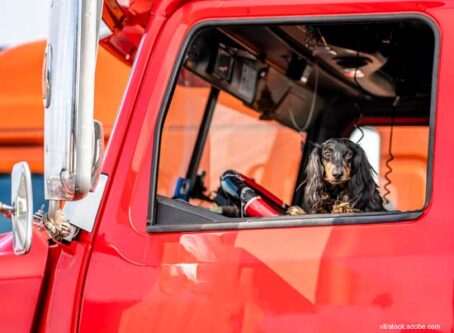Keep the predators out of the military pilot program
Playing an active role in helping our returning military veterans secure gainful employment should absolutely be a top priority of every government agency and business in the U.S. I hope no one, or at least very few, would argue that point.
Along those lines, it’s really encouraging that the Federal Motor Carrier Safety Administration has launched a pilot program to help young military veterans with truck driving experience get into trucking.
While there is definitely room for debate on allowing 18- to 20-year-olds to drive in interstate commerce, my big concern lies elsewhere – some of the motor carriers participating in the program.
So I dug around to see what the criteria was to be a fleet participant in the program. Here’s what I found:
- Complete and submit an application.
- Receive approval.
- Train covered drivers on the Federal Motor Carrier Safety Regulations.
- Install and operate electronic logging devices on all vehicles operated by study and control group drivers.
- Agree to comply with all pilot program procedures.
- Agree to submit required pilot program data reports monthly.
- Monitor and report safety records of participant and control group drivers as FMCSA requires.
- Maintain a good safety record in accordance with the prescribed program criteria.
I’m seeing some pretty big gaps in here. What about their safety ratings? Crash rate? Shouldn’t these motor carriers (if you want a successful pilot program, that is) to be the squeakiest clean of squeaky clean motor carriers?
Let’s be honest here. Many mega fleets are not known for their stellar treatment of drivers. Driver turnover is a real problem in the large fleets, and it’s because of poor treatment and low wages. Heck, some of them like Werner barely train their drivers and have had multimillion dollar judgments against them because of that. And Prime Inc.? That’s a motor carrier with a less-than stellar reputation for treating its drivers great.
If a motor carrier is whining about a driver shortage, we should be running away from their offers to participate in this program. Because chances are we’ll have some military vets get chewed up and spit out of the churning machine of dissatisfaction with the job and potentially lose some really great potential for the industry.
However, when you look at a fleet like Gully Transportation participating in the program, you know that’s a quality outfit with little turnover because they value their drivers. That’s the type of motor carrier we need to be steering our vets, regardless of age.
So, back to what I said at the very beginning. We owe it to our military veterans to help them achieve gainful employment. But we also owe it to them to keep the predators at bay and give them a fighting chance at returning to civilian life making a good paycheck and treated well along the way. Hopefully, FMCSA will add some criteria to this program and create a layer of protection in there for those veterans they are attempting to help.









